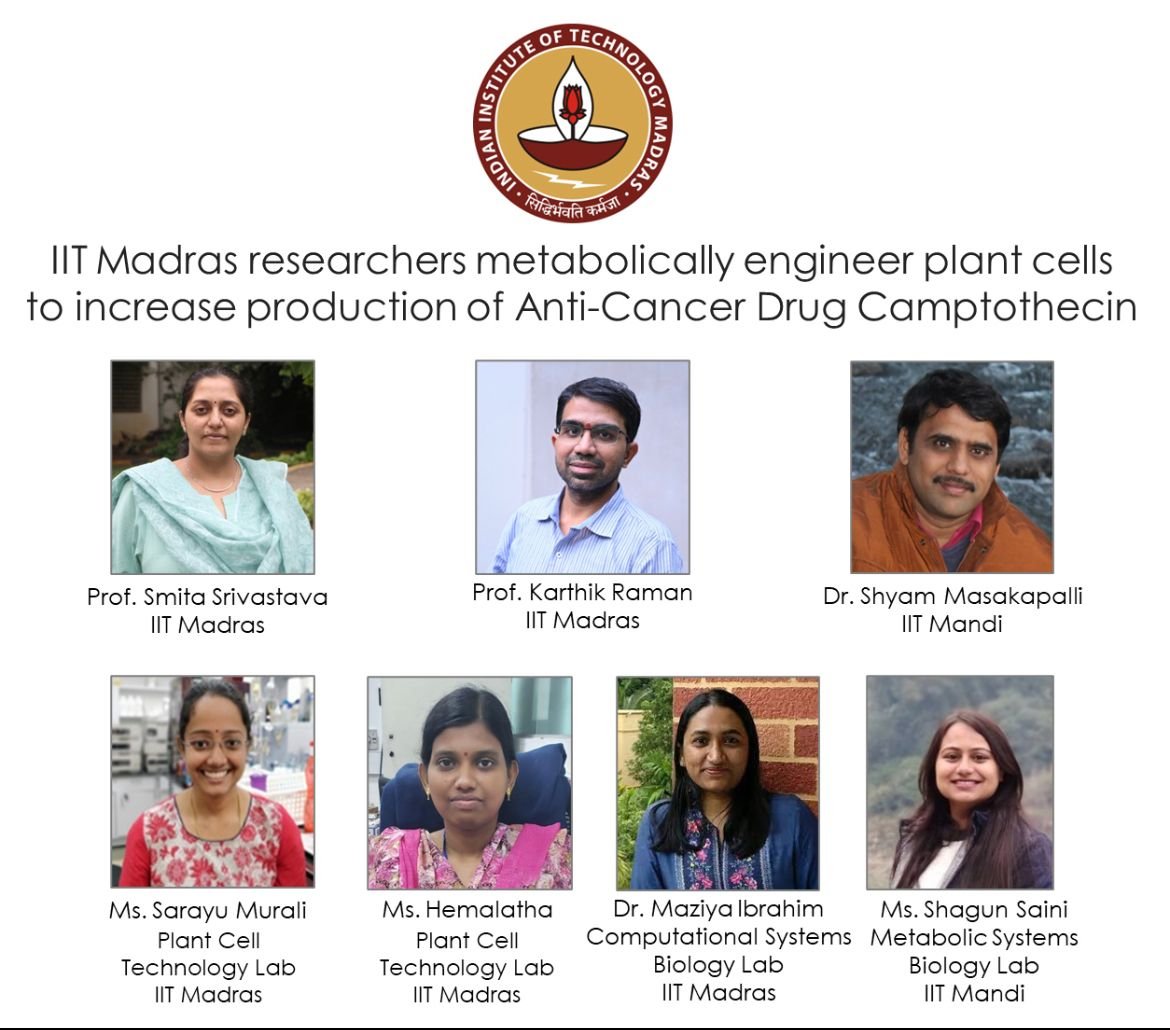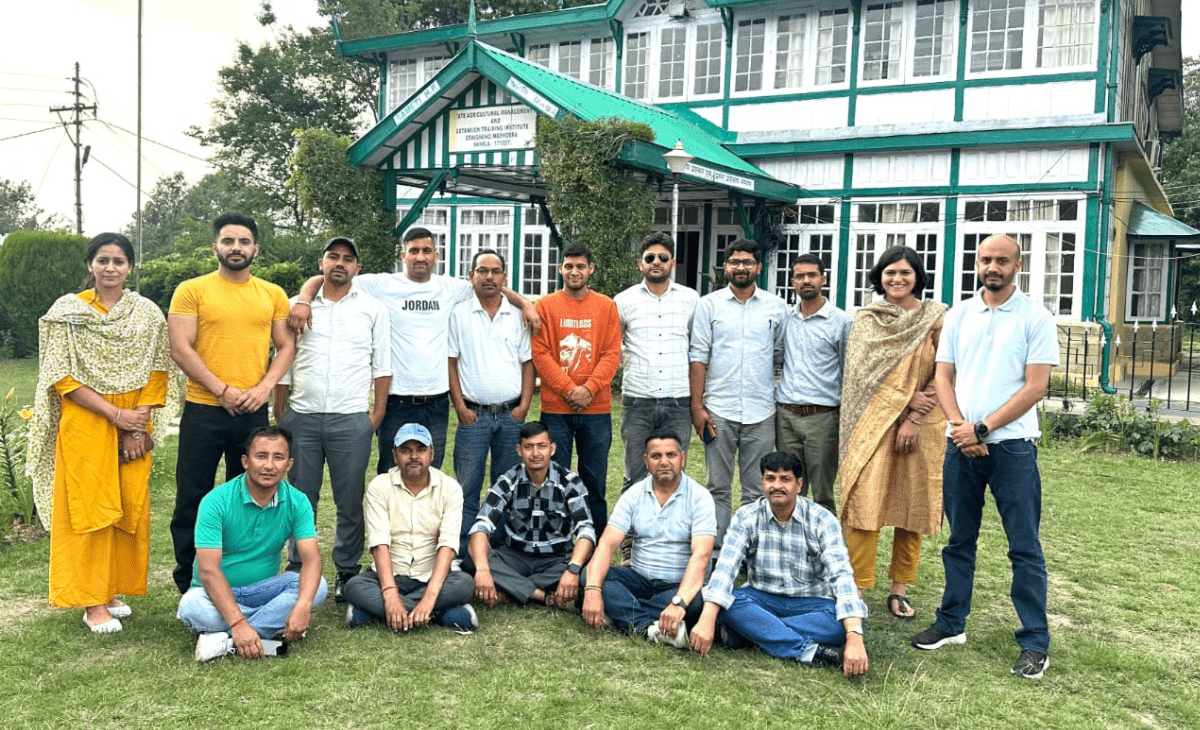Study can pave way for effective, efficient commercial production of Camptothecin
Mandi: IIT Mandi and IIT Madras researchers have metabolically engineered the plant cells of Nothapodytes nimmoniana to increase the production of Camptothecin, which is used to treat cancer.
The researchers from the Plant Cell Technology Lab of IIT Madras have developed a genome-scale metabolic model for N. nimmoniana plant cells using computational tools.
This can be a major boost to produce cancer-treating drugs as Camptothecin, the third most in-demand alkaloid, is commercially extracted in India from Nothapodytes nimmoniana, which is an endangered plant.
In a research paper published in 2021, IIT Madras researchers identified a microbe as a sustainable and high-yielding alternative source for the plant-derived anti-cancer drug Camptothecin.
Nearly 1,000 tons of plant material is required to extract just one ton of Camptothecin.Due to extensive overharvesting to meet the market demand its major plant sources are now red-listed as per IUCN.
The N. nimmoniana population has seen more than a 20 per cent decline in the last decade alone.
In the current research, metabolic engineering of the plant cells using a genome-scale metabolic model was led by Sarayu Murali, PhD student, IIT Madras, Dr. Maziya Ibrahim, Computational Systems Biology Lab, IIT Madras, Prof. Karthik Raman and Prof. Smita Srivastava, Department of Biotechnology, IIT Madras, along with Dr. Shyam K. Masakapalli and Shagun Saini from Metabolic Systems Biology Lab, IIT Mandi.
Highlighting the importance of this research, the principal investigator of the project Prof. Smita Srivastava, Bhupat and Jyoti Mehta School of Biosciences, Department of Biotechnology, IIT Madras, said, “Integration of metabolic engineering with bioprocess engineering principles can ensure enhanced and sustainable production of Camptothecin, to continuously meet its increasing market demand in minimum time and cost in addition to natural resource conservation.”
Further, the co-investigator of the study Prof. Karthik Raman, Bhupat and Jyoti Mehta School of Biosciences, Department of Biotechnology, IIT Madras, added, “This platform technology for model-based rational metabolic engineering of plant cells can be adapted to enhance the production of many other high-value phytochemicals as well. This study can pave the way for effective and efficient commercial production of camptothecin and other medicinally important monoterpene indole alkaloids, with reduced dependence on nature.”
Cancer has been a leading cause of death worldwide, accounting to nearly 10 million deaths in 2020 according to the World Health Organization (WHO). In India, the number of cases is expected to rise to 15.7 lakh by 2025 according to the Indian Council of Medical Research-National Cancer Registry Programme (ICMR-NCRP 2020). With increasing cancer incidences each day, the demand for enhanced production of anti-cancer drugs has been a compelling need of the hour.





